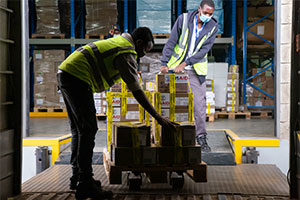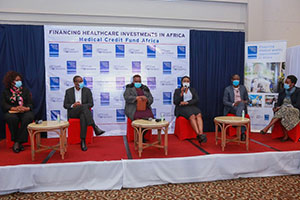The distribution of life-saving HIV/AIDS prevention and treatment drugs provided by Americans began. These antiretrovirals will be distributed to 2,144 public health facilities across Kenya’s 47 counties. Following agreements between the US and Kenyan administrations, the present deliveries are doable. Antiretrovirals and other medical supplies are being imported, warehoused, and delivered in a timely manner by the two governments.
“The United States has fought HIV/AIDS with Kenyans for decades, and we are pleased of the results,” said Eric Watnik, Chargé d’Affaires, a.i., of the US Embassy in Nairobi. “Medicines, equipment, and expertise donated by Americans have improved the lives of a generation of Kenyans and helped to manage the disease. We will continue to collaborate with the Kenyan government to achieve our shared objective of eliminating HIV/AIDS in Kenya.”
The grant will be distributed by the US government’s development agency, the United States Agency for International Development (USAID), in collaboration with Kenya’s Ministry of Health. Approximately 300,000 packs of 90-day doses of Tenofovir/Lamivudine/Dolutegravir and 4,400 packs of 30-day supplies of Atazanavir/Ritonavir are included in the current donation.
The two governments are motivated to seek a long-term solution for continuous supplies of health commodities supplied by the United States, including building processes that will improve accountability. The US and Kenya will work together to improve and strengthen Kenya’s public health supply chain, as well as to adopt comprehensive internal and external controls, to ensure that all Kenyans continue to get life-saving pharmaceuticals in a reliable and transparent manner.
In the meantime, on behalf of USAID and the Kenya Medical Supplies Authority, the Mission for Essential Drugs and Supplies (MEDS), a Christian not-for-profit organisation registered as a trust of the ecumenical partnership of the Kenya Conference of Catholic Bishops and the Christian Health Association of Kenya, will facilitate distribution.
The United States is Kenya’s top donor for HIV/AIDS prevention and treatment, and it is dedicated to the health and safety of Kenya’s 1.2 million antiretroviral users.




